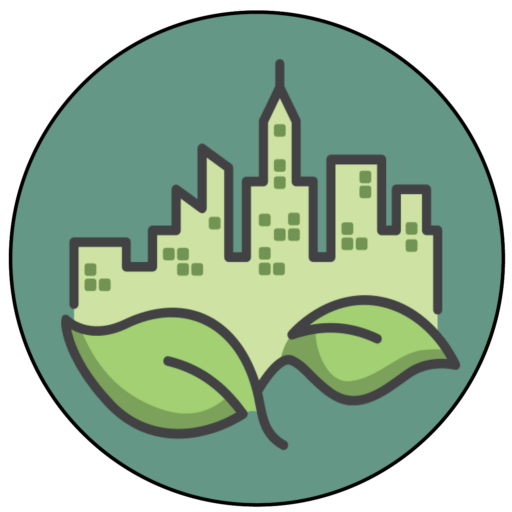Circle U. Climate Day
Participatory climate justice - Vienna as the Capital of Democracy 2025
“Welcome to the good future!”
The Circle U. Climate Day at the University of Vienna on June 5, 2025, was an open invitation to all participants to step into a good future. Organized by Circle U. Climate Chair Kerstin Krellenberg and her Urban Sustainability Living Lab (USLL), the event welcomed over 300 attendees in the University’s main and small ceremonial halls — making it the first Climate Day involving the Circle U. Alliance.
Initiated by the Circle U. Knowledge Hub on Climate, the event was supported by the University of Vienna’s rectorate and carried out in cooperation with the Environment and Climate Research Hub (ECH) and the University’s Children’s Office (Kinderbüro) .
A vision of the future – by children and youth
Immediately following the official welcome, children and young people from the climate education project DOCK for Change (run by the University’s Children’s Office) took the audience on a journey into the good future — a vision they had co-created over a year in collaboration with more than 40 experts from science, business, infrastructure, and education. With powerful ideas, they introduced imaginative concepts such as “Feel-good houses,” “Nowhere zones,” “Lie and trash magnets,” and an electricity-generating “Flying Fox.” These were illustrated by artist Leopold Maurer and unveiled as a large-scale, “Where’s Waldo”-style future map at the Circle U. Climate Day. Inspired by the children’s visions, attendees contributed their own “future strengths” — including messages like “look out for others,” “go vegan,” and “use public transport.”
Insights into the Climate Day – Watch the Video!”
The four thematic clusters of the DOCK for Change future vision —
“Nature Finds the City,” “Pleasure in the Circular Economy,” “City in Motion,” and “A Future Full of Opportunity” — guided visitors through the event’s Marketplace of Initiatives.
More than 20 creatively designed booths presented by researchers and initiatives from the University of Vienna, the City of Vienna, and independent research organizations offered hands-on engagement. Activities ranged from games and craft tutorials to visual displays — all focused on the themes of climate, participation, and justice.
Flash talks from research
Flash talks from the world of research provided visitors to the Circle U. Climate Day with brief insights into current research processes. These included the analyses of current initiatives in Vienna by students of the course “Urban Climate Change Adaptation”, the problematization of the invisibility of energy systems in public space(Job Zomerplaag), the citizen science-based collection and processing of environmental data(Silvio Heinze, Luftdaten.at) as well as conceptual analyses on the necessity of intersectional ecofeminist approaches to climate justice(Mirijam Salfinger) and on the recording of the multi-layered effects of urban agriculture(James Vandenberg).
Climate Walks – seeing the city differently
Two Climate Walks were held outdoors as part of the program. These were organized by the Environment and Climate Research Hub (ECH) of the University of Vienna in cooperation with the Climate Walk association and opened up new perspectives on the city in exchange with experts in the form of walks around the area of the university’s main building.
Florian Wagner (Economy for the Common Good) and Réka Novák (Cultural Center 4lthangrund) accompanied the Climate Walk “Our path to socio-ecological democracy”. Lorenz Siegel (Mobility Agency), Sophie Thiel (Geht doch Wien) and Yvonne Franz (AG Urban Studies, University of Vienna) addressed the question of the second Climate Walk “How climate-friendly is our infrastructure?”.
Panel discussion – Climate justice through participation
Kerstin Krellenberg, Circle U. Climate Chair at the University of Vienna, moderated a multi-layered panel under the motto of the day “Participatory climate justice – Vienna as a democratic capital 2025”. Patrick Scherhaufer, Senior Lecturer at BOKU, shed light on the current role of science in relation to citizen participation. Daniela Zanini-Freitag, expert for social change at the Federal Environment Agency, described how democratic participation processes are in implementation. Daniel Dutkowski, Deputy Head of Urban Renewal (GB*Südwest), was able to report on the tools and communication in his work to achieve forms of participation in climate change adaptation that unite different needs. Markus Weidmann-Krieger, Ecological Director of Solektiv, reported on his experience of the importance of participation and self-administration for civil society.
Stephan Auer-Stüger, municipal councillor of the City of Vienna, addressed the interaction between climate justice and democracy from the perspective of political practice. Katrin Vohland, Director General of the Natural History Museum Vienna (associated partner of Circle U.) described how the transfer of knowledge on complex topics such as climate change can open up opportunities for action and must be linked intersectionally. Viktoria Kudrna, speaker at the Austrian National Union of Students (ÖH), emphasized the intersection of the climate crisis and housing policy, the role of climate-neutral universities and communication strategies in this discourse.
Through a diverse and inclusive program, the Circle U. Climate Day brought together researchers, students, children, policymakers, and citizens. In the spirit of DOCK for Change’s hopeful vision, the event explored tough questions about climate, democracy, and justice — always grounded in a belief that positive change is possible – we’re staying tuned!
Report: Marie Aglas
Photos: Vienna University Children’s Office









